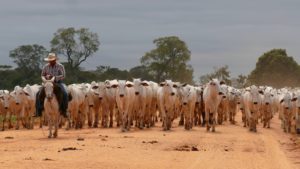Home » Commentary » Opinion » ILC poor land management model
· Ideas@TheCentre
 The recent controversy surrounding the Indigenous Land Corporation (ILC) in Cape York is emblematic of a government body operating on a broken model.
The recent controversy surrounding the Indigenous Land Corporation (ILC) in Cape York is emblematic of a government body operating on a broken model.
Established in 1995, the ILC is a federal government organisation that assists Indigenous groups to purchase land unable to be acquired through the Native Title process. In many cases the ILC has acted as a caretaker for land, leasing it from its Indigenous people and building investments such as cattle stations and tourism ventures to be handed back to traditional owners down the track.
Unfortunately, following millions of dollars of investment, three Cape York cattle stations have been running at a loss. As a result, the ILC has decided to hand direct control of these properties back to their Indigenous owners.
Part of this process includes selling off the large numbers of cattle that stock the ventures. While the ILC generates a significant amount of its own revenue, in 2017 it received over $60 million in government funding. Divesting the stations’ livestock will go some way to recouping these funds.
However, some Indigenous land owners are furious, suggesting that the cattle should remain so Aboriginal can continue to run viable enterprises and maintain employment and training programs once the ILC has left.
While both the taxpayer and Indigenous groups both can lay claims to the cattle, it must be asked what the government is doing running commercial enterprises on what is essentially private land?
Once title deeds were passed to Indigenous owners, the government should have allowed these groups the full autonomy to manage the land. The ILC could provide advisory services, however the management of the properties should have be contracted to private organisations who could properly assess their commercial strengths and weaknesses.
Thankfully, the ILC’s withdrawal from Cape York is a sign that this may be happening. Indigenous owners will now be free to use this land as they wish.
If this means placing a higher priority on developing training facilities for their people rather than maintaining a high profit venture, so be it. Such a decision would be made free of the political and policy environment by which the ILC is constrained.
ILC poor land management model